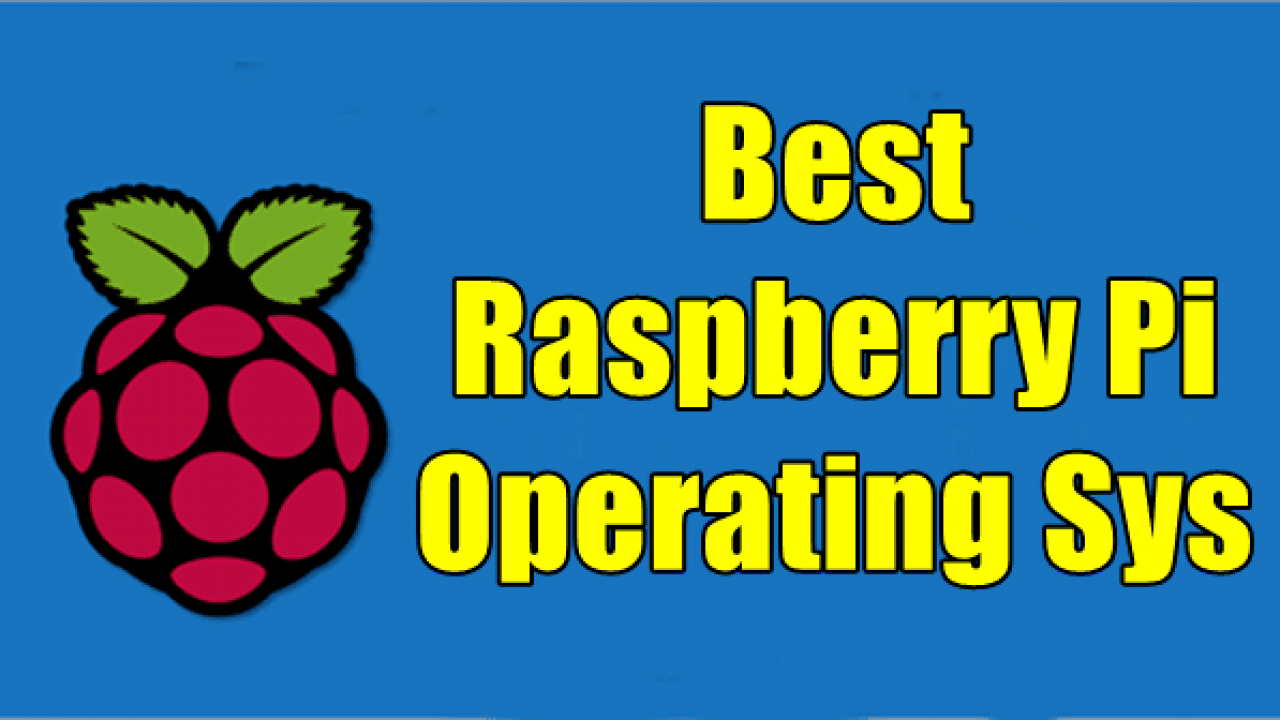
Since our post on the 8 New Raspbian Features to Start Using on Your Raspberry Pi about a year ago, we haven’t covered anything major on the Raspberry Pi. No one needs to be reminded of how successful the Raspberry Pi has been since its beginnings, which is the impetus for this post.
Today, we’ve compiled a list of the finest Linux distributions for the Raspberry Pi.
But, before we get into that list, let me give you a quick primer on NOOBS.
Because the Raspberry Pi supports many operating systems, it frequently comes without one.
Most of the time, it comes with an SD card with NOOBS (New Out Of The Box Software) – an OS that comprises a range of Operating Systems from which you may choose which to run on your Raspberry Pi setup.
While an SD card with NOOBS pre-installed can be purchased, you can set it up yourself by following the instructions on the Raspberry Pi website.
1. Raspbian
Raspbian is a Debian-based operating system designed specifically for the Raspberry Pi, and it is the ideal general-purpose operating system for Raspberry Pi users.
It makes use of the Openbox stacking window manager and the Pi Improved Xwindows Environment Lightweight, as well as a variety of pre-installed applications such as Minecraft Pi, Java, Mathematica, and Chromium.
Raspbian is the Raspberry Foundation’s official supported operating system, and it can handle any task you throw at it.
2. OSMC
OSMC (Open Source Media Center) is a free, simple, open-source, and user-friendly standalone Kodi OS that can play almost any media type.
It has a modern, elegant, simple User Interface and is entirely configurable thanks to the several built-in graphics that come with it. If you want to manage media content on your Raspberry Pi, go with OSMC.
3. OpenELEC
OpenELEC (Open Embedded Linux Entertainment Center) is a tiny Linux-based JeOS (Just Enough Operating System) that was created from the ground up to transform PCs into Kodi media centers.
JeOS (pronounced “juice”) is a paradigm for tailoring operating systems to the requirements of a certain application, such as a software appliance.
Wikipedia
Open ELEC is similar to a stripped-down Kodi in that it has less customization choices and restricts access to specific areas, such as SSH, and it is more difficult to alter.
Nonetheless, OpenELEC is a capable media center that may meet your requirements if OSMC does not.
4. RISC OS
RISC OS is a one-of-a-kind open-source operating system built exclusively for ARM processors by the inventors of the original ARM. It has nothing to do with Linux or Windows and is maintained by a devoted community of volunteers.
If you decide to use RISC OS, you should be aware that it is considerably different from any Linux distribution or Windows operating system you have previously used, and it will take some getting accustomed to.
5. Windows IoT Core
Windows IoT Core is a Windows operating system designed specifically for the Raspberry Pi to serve as a development environment for programmers and developers. Its goal is for programmers to utilize it to create prototypes of Internet of Things devices utilizing the Raspberry Pi and Windows 10.
It prioritizes security, connectivity, creation, and cloud integration. Unlike the other titles on this list, you cannot use it unless you have Windows 10 installed on your PC, as it requires Visual Studio on a Windows 10 configuration to work.
6. Lakka
Lakka is a free, lightweight, and open-source operating system that can transform even the tiniest PC into a full-fledged game console without the use of a keyboard or mouse.
It has a stunning User Interface and so many customization possibilities that you may become overwhelmed.Its PS4-like user interface adds style to the Raspberry Pi, so choose it if you’re a gamer.
7. RaspBSD
RaspBSD is a FreeBSD 11 image that has been prepared in two images for Raspberry Pi computers.
If you didn’t know, FreeBSD isn’t Linux, but it operates in the same way because it is a descendent of the Berkeley Software Distribution research and it is one of the world’s most widely used Operating Systems today, with its code residing in game consoles such as the PlayStation 4, macOS, and so on.
8. RetroPie
RetroPie is the most popular open-source Debian-based software library for emulating retro games on your Raspberry Pi, PC, or ODroid C1/C2, and it is now the most popular alternative for that task.
RetroPie utilizes the EmulationStation frontend and SBC to provide users with a good vintage gaming experience, so you can’t go wrong.
9. Ubuntu Core
Ubuntu Core is a version of Ubuntu created specifically for Internet of Things applications.
With over 20+ variations, Ubuntu is the most popular Linux-based operating system in the world, and because it has an active and welcoming community, it will be simple to get up and running with Ubuntu Snappy Core on your Raspberry Pi.
10. Linutop
Linutop OS is a secure Web Kiosk and digital signage player based on Raspbian. It is intended for professionals that need to build public Internet kiosks and digital signage systems based on Raspberries.
This operating system is ideal for running hotels, restaurants, shops, city halls, offices, museums, and so on, and it is compatible with the Raspberry Pi B, B+, and 2.